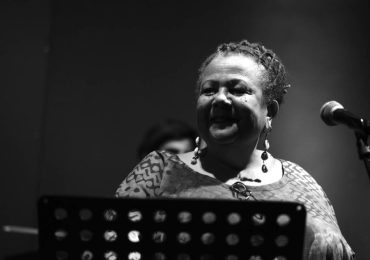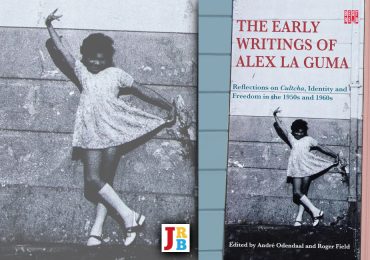Melville’s legendary haunt Xai Xai is for writers part restaurant, part sanctuary, writes guest City Editor Lidudumalingani.
In Kazuo Ishiguro’s fourth novel, The Unconsoled, published in 1995, the narrator, a pianist, Mr Ryder, arrives at a city he does not remember, to give a concert he does not remember agreeing to give. Mr Ryder’s amnesia is now communal, shared among the city dwellers in a city like Johannesburg. Every now and then, people emerge from their houses, to find a city that is slightly altered. A city that does not remember them. A city that they don’t remember.
During the lockdown, the act of missing a familiar place has taken a different path, something else entirely is beginning to unfold, an imagination of new architecture, of new topography, of new mobility. The majority of citizens are holding on to memories now, extending the places they love beyond their own identity and design.
The one place that dips in, out and around my own psyche is Xai Xai Lounge, on 7th Street in Melville. Xai Xai is nestled in darkness. It is as if light is barred from there. Even in broad daylight, the light enters but only travels for a short distance. Every city has that one legendary place, its status earned by the fact that it is a sanctuary for artists. Xai Xai is that in the city of Johannesburg: a well where writers, actors, photographers, artists, swap stories, blessings and presence.
A year ago, while seated at a table with writers to celebrate the publication of Black Tax, a book of essays edited by Niq Mhlongo, it occurred to me that we were continuing a long tradition, one that had been in place for many years. Writers gathering at Xai Xai.
On 15 September 2008, the poet, journalist and actor John Matshikiza died of a heart attack in Melville. On the day, I’m told, he had been having a drink with Tiisetso Makube, another writer, at Xai Xai. The story is relayed to me by the writers Fred Khumalo and Niq Mhlongo.
John Matshikiza was fifty-four when he died. Something weird happens to the maths of people’s ages, depending on whether they are alive or have passed. John, at fifty-four, was old when he was alive, but in death fifty-four is young. He was, as the Guardian described him in its obituary, ‘one of those polymaths who South Africa has an odd way of throwing up: film and stage actor, poet, journalist, broadcaster and political activist, he seemed equally comfortable in each of these roles.’ He came from a strong artistic lineage. His father, Todd Matshikiza, was well known for the jazz musical King Kong and his memoir Chocolates for My Wife, and his daughter is Lindiwe Matshikiza, the acclaimed multidisciplinary artist.
The transferring of the spirits that happens at Xai Xai returns me to John, always. Restaurants often swap chairs around and change furniture, but I want to believe that the chair and the table that John sat at are still there. That they were, instead of being thrown out, shuffled around, and that they have welcomed many writers since. I am convinced that something is transferred, the way a departed grandfather might light a candle for their grandson, from beyond this Earth, suddenly opening up possibilities that seemed impossible. John does this for all the writers that go to Xai Xai, for all the writers that sit alongside him.
For me, the sensation isn’t new. There is another time that I sat where he had sat, and absorbed his spirit, saw the flickering candle he had lit.
Sometime in 2016, I travelled to Claremont, in the Southern Suburbs of Cape Town, to interview the photographer George Hallett. I’m unsure now what season it was, but I remember the sun shining through the train windows and resting on an elderly Coloured woman, who had on a purple blouse. The woman sat on the bench like she had settled every part of herself, as if, at that moment, sitting there was the only thing that mattered.
In George Hallett’s flat, up a road behind Cavendish Square, I sat in a chair, by the window that opened into a garden, and further on, just visible, a road, then the parking lot to the mall. I asked George about a John Matshikiza picture, which I had seen in George’s retrospective at the South African National Museum a few days earlier, and had, before that, encountered in various other mediums, books, the internet, magazines. In the picture, John poses with his daughter Lindiwe. ‘He was sitting where you are sitting,’ George told me, grinning. In the picture, John looks directly into the camera, while Lindiwe looks out of the same window that I was looking out of.
Xhosa people, all in all, Black people, believe that in the place where someone dies, their spirit remains, and I want to believe the same about John, that his spirit remains in Melville, at Xai Xai, that something else brought writers there, but now it is solely his spirit, that writers drink from it.
As the world slowly begins to open up, lockdown restrictions being relaxed, and finally, when the entire world goes back to full operation, patrons will file out to their favourite places. Xai Xai will be the one of the first places I will go to, because it is home, for me, for writers before me, for writers after me.
- Lidudumalingani is a writer, filmmaker and photographer, and winner of the 2016 Caine Prize. Follow him on Instagram and Twitter.





